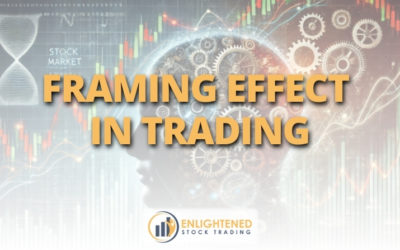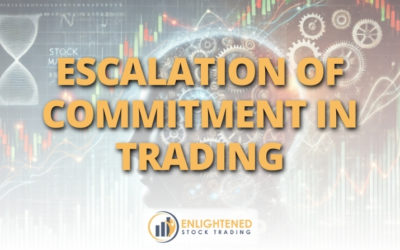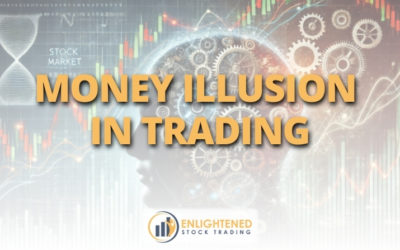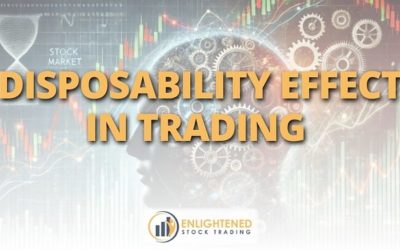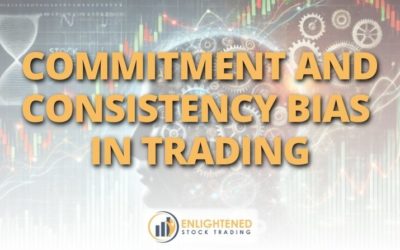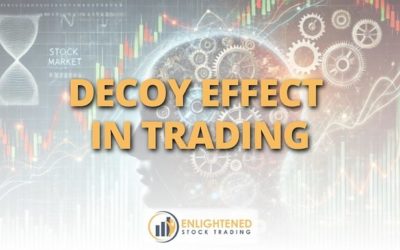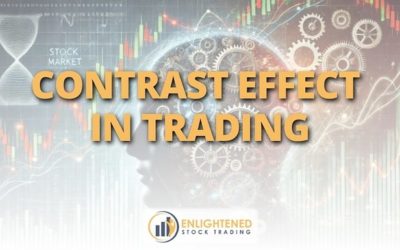The Framing Effect is a cognitive bias where the way information is presented influences decision-making, even when the underlying facts remain the same—a concept frequently explored in trading psychology. Imagine you’re at the supermarket and see two labels: “90% fat-free” yogurt “10% fat” yogurt Even though both statements mean the same thing, people tend to prefer the “90% fat-free” option...
Adrian Reid

Break Free from Escalation of Commitment in Trading & Trade Smarter
When traders find themselves in a losing position, logic should dictate an exit. But instead of cutting their losses, many double down, convinced that the trade will turn around if they just hold on (or buy even more). This is an escalation of commitment, a powerful cognitive bias that causes traders to irrationally cling to failing trades, not because of market fundamentals, but because of an...
The Truth About Money Illusion in Trading—And How to Overcome It
Money illusion is an economic theory that suggests that people think in terms of absolute dollar values rather than real purchasing power. This happens because inflation and currency value changes aren’t always factored into decision-making—an oversight often explored in trading psychology. A common example of a Money Illusion in everyday life is salaries. If you receive a 5% pay raise but...
Information Bias in Trading: Why More Data Won’t Make You a Better Stock Trader
Information bias is the tendency to seek excessive information, believing that more data leads to better decisions, even when the extra information is irrelevant or misleading—a behavior often addressed in trading psychology. We make thousands of decisions on a daily basis. Some are tougher; some are easier. But usually, the best ones are those made quickly, before we are influenced by the...
Market Chaos, Trading Psychology & Position Sizing
I have four things for you this week: A very interesting market update given the turmoil in the markets this week A psychological bias that is super common and really hurts traders Position sizing tip to keep you in the game How to think about stop losses to improve your performance Let’s jump in...Stock Market Update for 15 March 2025This week was certainly not the most fun long side traders...
The Truth About Loss Aversion in Trading—And How to Beat It
Loss aversion is a psychological bias where the pain of losing feels much stronger than the joy of winning—a core concept in trading psychology. In everyday life, this explains why people avoid selling a house at a loss, even if it's a rational decision, or why they hold onto outdated technology because they "paid too much to replace it." When it comes to stock trading, anyone can talk about...
The Disposability Effect in Trading: Are You Overlooking Great Opportunities?
The Disposability Effect is a cognitive bias where people undervalue things they already own, leading them to discard useful resources prematurely. Imagine buying a high-quality kitchen appliance, only to throw it away after a few minor issues instead of repairing it. This mindset isn’t just wasteful; it reflects a deeper illusion in trading psychology that can be financially devastating when...
Commitment and Consistency Bias in Trading: How to Stay Objective
As humans, we love to stay consistent with our past decisions even when they’re wrong. This is known as Commitment and Consistency Bias, a cognitive shortcut where we subconsciously justify and stick with previous choices to avoid the discomfort of admitting mistakes—one of many patterns explored in trading psychology. For example, imagine you bought an expensive gym membership at the start of...
How the Decoy Effect in Trading Skews Your Risk & Reward Perception
The Decoy Effect is a well-documented psychological bias that subtly manipulates decision-making by introducing a target option that makes one of the other choices appear significantly more attractive. This subtle manipulation was first introduced in a 1982 study as the “Asymmetric Dominance Effect” and is now widely used in consumer choice strategies, pricing models, trading psychology, and...
How to Overcome the Contrast Effect in Trading & Make Smarter Choices
The contrast effect is a cognitive bias where our perception of something is influenced by what came before it. Humans are particularly susceptible to this bias, especially when it comes to how we perceive stock prices and value. You would think a bottle of wine that costs $300 is cheap after looking at a list full of $1000 bottles, right? Now think of how this impacts institutional investors...
Stop Gambling! House Money Effect in Trading & How to Avoid It
The House Money Effect is a psychological bias where people treat money they’ve recently won (or earned easily) as less valuable than their original capital. This leads to riskier decisions like a gambler taking bigger bets after a hot streak. This cognitive bias, borrowed from casino psychology, transforms how traders perceive and handle risk after periods of success—a pattern well recognized...
How to Use Chaikin Money Flow for Smarter Systematic Trading
The Chaikin Money Flow (CMF) is a volume-based trading indicator developed by Marc Chaikin. It measures the volume of money flow into or out of a security over a given trading period, typically 21 trading days. The core principle behind CMF is that when closing prices are near the high on increasing trading volume, it indicates strong accumulation or distribution. Conversely, when closing prices...

